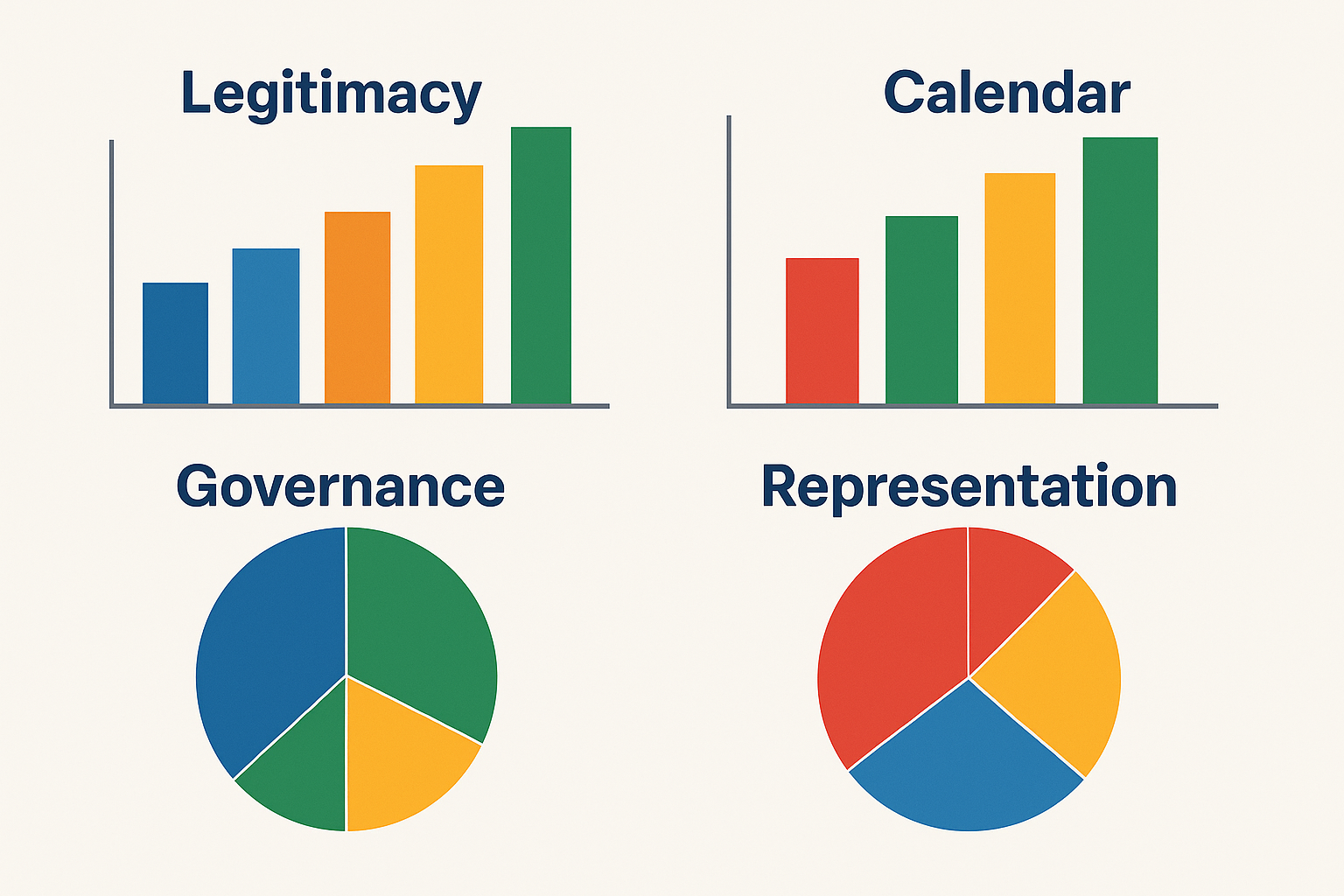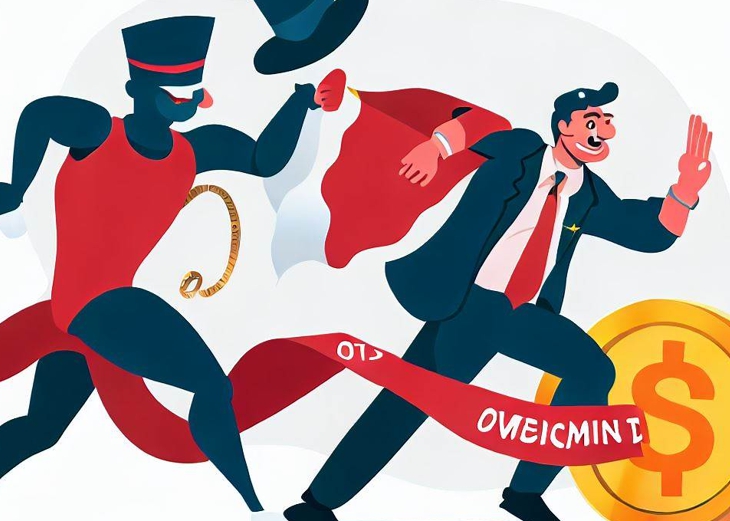After 21 years within electronic sports, which now includes new divisions such as digital sports (virtual, simulated, and metaverse), I can say with complete certainty—based on experience and facts—that we are still far from becoming a fully recognized and structurally reliable sports class, at least within institutional esports (federative system).
The term One Man Show (or One Man Band) describes an organization where a single individual centralizes decisions and operations. This model tends to be bureaucratic, resistant to change, and prioritizes individual achievements over cooperation. A “one man show” culture poses risks: lack of continuity, loss of institutional knowledge if the leader steps down, and inability to structure national calendars and rankings. In electronic sports, several national associations have emerged with goodwill but no structure; studies on European esports federations show that many started as initiatives by a few enthusiasts and remained as solo or very small group operations. The consequences include improvised qualifiers instead of continuous rankings, lack of legitimacy, and frustration among athletes and sponsors.
Positive Examples of Structured Federations (infrastructure, Operations, National Calendar, Official Ranking System and Compliance)
|
Country |
Evidence of Legitimacy |
|
Brazil – CBDEL |
The Brazilian Confederation of Esports (CBDEL) holds certifications 18 and 18A from the Ministry of Sports, renewed since 2017. These certifications allow for the use of public funds and tax exemptions. CBDEL organizes international competitions in Brazil and maintains its own calendar. |
|
Russia – RESF |
The Russian Esports Federation has celebrated 25 years with governmental support. Russia officially recognized esports as a sport in 2001. RESF has hosted over 10,000 tournaments across 89 provinces and distributed over 300 million rubles in prizes. |
|
South Korea – KeSPA |
Korea eSports Association (KeSPA) confirmed in 2015 that the Korean Olympic Committee classified esports as a “second-tier sport,” a first step toward Olympic inclusion. KeSPA’s AESF profile confirms it is a member of the Korean Olympic Committee and manages dozens of esports titles. |
|
Colombia – FEDECOLDE |
Although FEDECOLDE's website is dynamic, the federation is recognized by the IESF and the Colombian government. Ongoing legislation in the Colombian Congress (Bill 007 of 2023) aims to officially recognize esports as a sports discipline and names FEDECOLDE as the sector’s representative (confirmed through official documents). |
|
Mexico – FENAVIDE |
The official page of the National Federation of Videogames and Electronic Sports (FENAVIDE) states that it is recognized by CONADE (National Commission for Physical Culture and Sport) as the only body authorized to promote, regulate, and standardize esports in Mexico, and the only one legally allowed to organize national qualifiers for international competitions. |
|
Morocco – FRMJE |
The Royal Moroccan Electronic Games Federation states that its mission is to develop and promote esports in Morocco and to incorporate values of engagement, solidarity, and culture. It is recognized by its country government. |
|
Vietnam – VIRESA |
Vietnam Recreational and Electronic Sports Association (VIRESA) is described as having been created by the Ministry of the Interior on January 13, 2009. It is recognized by the Ministry of Sports and is an official member of the National Olympic Committee of Vietnam. It is also noted as the sole body in charge of selecting national teams and Olympic esports qualifiers. |
|
Indonesia – PBESI |
Pengurus Besar Esports Indonesia (PBESI) was created to develop and promote a stable esports ecosystem and has been designated as the sole governing entity for all esports activities in Indonesia. |
|
Thailand – TESF |
The 2024 Asian Esports Games were organized by the Thailand Esports Federation (TESF) with support from the Ministry of Tourism and Sports, the Sports Authority of Thailand (SAT), and the National Sports Development Fund, indicating governmental recognition and support. |
Negative Examples ("One Man Show")
Several so-called "national federations" are, in reality, one-man operations or small groups with no official recognition or calendar. I could give few dozens of names but let`s focus on technical parts. These situations often occur when:
- The entity appears only when an international event requires a “national federation” to send representatives, organizing improvised qualifiers instead of maintaining an ongoing national ranking (as in football).
- There is no recognition from the country's Ministry of Sports or Olympic Committee; the group simply self-declares itself a "federation." However, this recognition must ideally come from the country’s national sports authority, which has the constitutional and legal duty to serve its citizens through public policies—including in sports.
- Recognition by an Olympic organization is merely for a private event hosted by a private entity, without the legal obligation to foster citizenship, career paths, and education through sport.
- There is a lack of transparency regarding leaders, finances, and selection criteria.
Root Causes Behind the Support of “One Man Show” Entities
It is common for esports federations to be accepted by government bodies that lack proper standards for evaluating national entities. Many of these entities rely on certificates and endorsements from international organizations that themselves have affiliation commissions supposedly responsible for reviewing documents and compliance. However, these commissions often lack technical knowledge, understanding of international law, and—above all—comprehension of the legitimacy standards in the countries from which these federations originate. Furthermore, members of these commissions are often part of other national federations affiliated with the same entity, creating clear conflicts of interest and discomfort in judging peers who were similarly vetted. When these commissions fail in their duties, they end up legitimizing entities that are unfit to promote the development of esports in their countries.
There is also a lack of support and engagement from the esports community itself, which leads to divisions and confusion about what a national federation should actually do, and what practitioners perceive as legitimate.
Unfortunately, there is often only interest in the “esports tourism,” where self-proclaimed leaders of “one man show” entities benefit from invitations to represent their countries in various events, tournaments, or forums. In these venues, they give presentations on topics so basic that anyone could explain them, with no real legitimacy, administrative or operational experience, or knowledge of public policy or social inclusion through esports as a tool for both citizenship and sports economy.
Negative Impacts of “One Man Show” Entities
- Lack of Credibility: When the “federation” is only a title with no structure, sponsors and sports authorities stop supporting the modality. This compromises the formal recognition of esports.
- Harm to Athletes: Improvised qualifiers with no annual rankings make career planning difficult. Young players and families may be misled by empty promises.
- Barrier for Educators and Investors: Without transparency and governance, educational programs and investments become risky. Companies and schools hesitate to support unstable structures.
- International Image: Even international federations have been criticized in the past for being dominated by a single country, forcing their leaders to admit they must avoid being seen as a “one man band.”
- Legitimacy and Recognition: Organizations led by a single person rarely maintain a competitive calendar or continuous national ranking (unlike in traditional sports). Instead, they call for quick qualifiers when an international event arises, compromising long-term credibility.
- Youth Education and Dreams: The illusion of a “national federation” misleads youth and families into believing a structure exists similar to traditional sports. Upon discovering it’s just a title with no foundation, the resulting disillusionment can lead to early withdrawal or focus solely on the private circuit.
- Economy and Government Support: Without professional management, these federations fail to secure funding, sponsorships, or public support. Studies from the International Journal of Esports show that due to their volunteer-led nature, many European, African, Pan-American, and even Asian associations remain amateur.
- Credibility of Serious Federations: The proliferation of “phantom” entities damages the reputation of transparent, well-governed federations. Serious federations must work twice as hard to prove their legitimacy, governance, and commitment to athletes.
Conclusion
For esports to be legitimately recognized as a sport—in practical, market-based, and public policy terms—it is essential that national federations attain institutional recognition, operate with transparent governance, maintain a continuous competitive calendar, and ensure collective representation. Governmental, administrative, and operational infrastructures must be formally implemented within each national entity. Additionally, public policies must be created and presented for adoption by local and national governments. These should include legislative and incentive frameworks—both endemic and non-endemic to esports—accompanied by internationally verified recognition, partnerships with international institutions, governmental agencies, private organizations, and the establishment of inclusive educational and social programs for schools, universities, grassroots development, and high-performance athletes. A continuous and annual national ranking system for both players and teams, structured with promotion and relegation mechanisms by tier, is also fundamental.
Positive international examples clearly demonstrate that when an entity receives proper governmental and community support, organizes regular competitions, and provides transparency and accountability, esports can flourish and gain long-term respect.
Conversely, “One Man Show” associations gravely undermine the integrity of the ecosystem. Beyond the structural and institutional damage, these entities often inflict severe psychological and emotional consequences on young individuals—especially adolescents and young adults—who engage with these structures under the belief that they are participating in a legitimate pathway toward personal and professional growth.
The lack of ethics, transparency, and moral responsibility among leaders of such entities frequently leads to humiliation, emotional neglect, and manipulation of aspiring athletes. Many face recurrent frustration, burnout, loss of motivation, and in some cases, identity crises—as they are denied fair recognition and opportunities despite their efforts. These environments often foster toxic competitiveness, favoritism, and exclusion, leaving long-lasting marks on the self-esteem and mental health of those involved.
Furthermore, the illusion of power pursued by the leaders of such entities is ultimately unsustainable and often rooted in personal financial interest, ego reinforcement, and a desire for control—not in the genuine development of the sport or its community. This abuse of influence distorts values, deters investment, and isolates entire generations of talent who could have flourished in a more ethical, transparent, and inclusive environment.
In this context, it is imperative to emphasize that international entities — both continental and global — carry an untransferable ethical and institutional responsibility to recognize only those organizations that are truly legitimate, structurally sound, and committed to the values of genuine sports development. These higher bodies must thoroughly review and strengthen their affiliation criteria, establishing robust procedures for verifying documentation, compliance, and governance, as well as periodic reassessment mechanisms to evaluate the continuity and integrity of currently affiliated members. Negligence in this regard perpetuates amateurism, corrodes sector credibility, and jeopardizes the formation of entire generations.
To ensure the sustainable growth of esports as a credible and healthy ecosystem, it is imperative to reject such structures and uphold professional ethics, institutional legitimacy, psychological safety, and respect for the athlete and community as non-negotiable pillars of governance.




